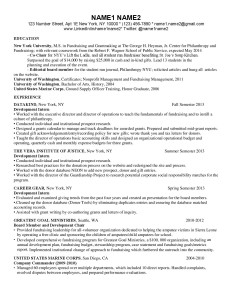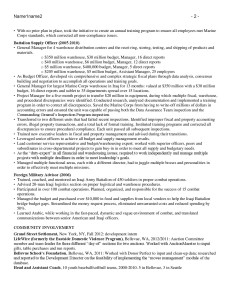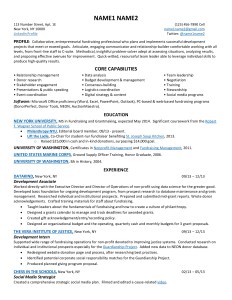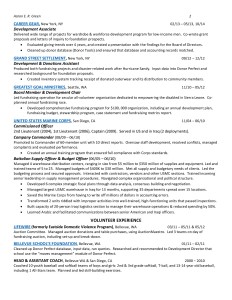
Photo Credit: Leticia Roncero via Compfight cc
If you are hoping to transition from one career to another, I have some tips for you based on my experience working with many clients who’ve moved from one field to another.
Here’s a story about one of my clients who I helped cross the bridge from one career to another.
My client had recently left the military and wanted to start a new career in the non-profit sector, doing fundraising. He’d taken classes, done internships, and gotten volunteer experience. To my ears, he was well-prepared to take a slightly higher than entry-level job. Yet he wasn’t getting any interviews.
Once I took a look at his resume, I knew why. Here is what it looked like:


I identified 3 main problems: over-emphasis on his military experience, overuse of military terminology, and insufficient positioning of his new skill set, expertise, and experience.
In the new resume that I prepared, we included a section of keywords called “Core Capabilities” so readers would see his transferable skills right up front. We shrank his military experience and used regular language to explain what he did, so civilians would understand the breadth, scope and depth of his experience. We kept Education first, but streamlined it to showcase his credential in fundraising. And we created a Volunteer Experience section to show his commitment to the non-profit field and the fundraising he did as a volunteer.

 The result? My client immediately got several interviews, and started a new job within 6 weeks of our finishing work together.
The result? My client immediately got several interviews, and started a new job within 6 weeks of our finishing work together.
The kind of things I did for this transitioning military person also apply to civilians making a career transition:
- Use plain language instead of a lot of insider jargon from your prior field.
- Highlight transferable skills in a separate section.
- Give prominence to any education, credentials and experience you have in your new field.
- Make sure you CAN demonstrate your commitment to the new field by taking classes, doing pro bono work, taking on related assignments in your current job, doing volunteer work for a charity that will allow you to develop new skills – use your imagination!
- Move around sections in order to help the reader focus on what is most important to positioning you for the transition.


